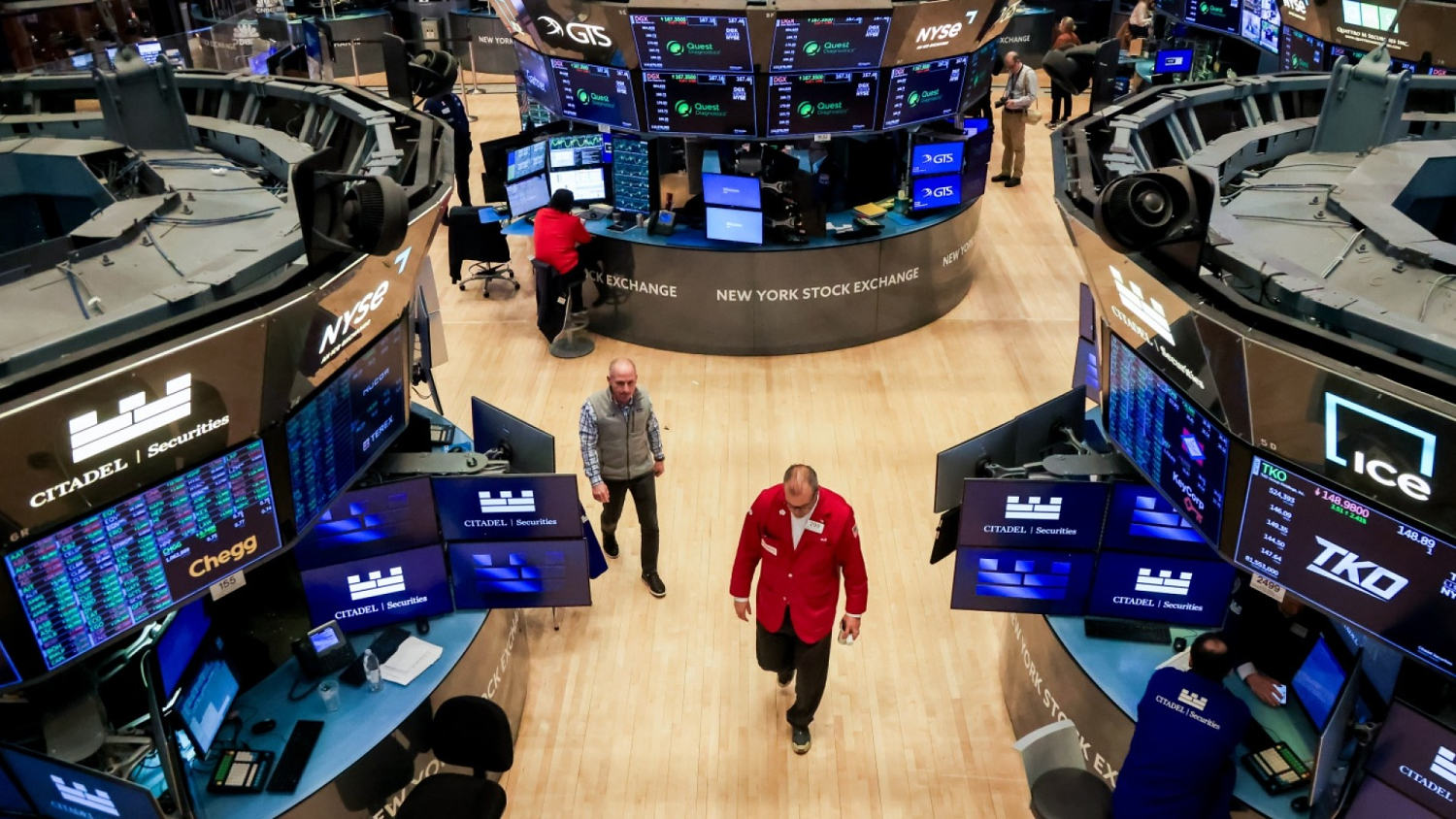How the Colorado Supreme Court has nullified Colorado constitutional limits on taxes, debt, and corporate privilege. https://dts.podtrac.com/redirect.mp3/d2h6a3ly6ooodw.cloudfront.net/reasontv_audio_8322736.mp3 1x 1.1x 1.25x 1.5x 2x 3x :15 :15 Download Jason Furman: Why Everyone Is Wrong About the Economy Jason Furman is one of the most influential Democratic economists of the past two decades. From 2013 to 2017 he chaired President Barack Obama’s Council of Economic Advisers, where he helped shape tax, trade, and labor policy during a period of slow but steady postrecession recovery. Before that, he played a key role in crafting the 2009 stimulus. Today he is a professor at Harvard and a senior fellow at the Peterson Institute for International Economics. He’s been in the news for his withering critique of former President Joe Biden’s dismal economic record and his two-fisted attacks on President Donald Trump’s trade policy. Furman is perhaps best known for his technocratic approach to economics—he defends markets, trade, and budget discipline within a framework of pursuing broadly progressive goals. That makes him something of an outlier in today’s Democratic Party, which moved sharply toward industrial policy, protectionism, and deficit-financed spending under Biden. In a recent essay titled “The Post-Neoliberal Delusion,” Furman critiques this pivot and defends the “neoliberal” consensus as a coherent, rigorous, and beneficial way of thinking about economic policy. In April, Furman went on The Reason Interview With Nick Gillespie and discussed why the Biden administration’s marquee initiatives—from the American Rescue Plan to student loan forgiveness to the CHIPS Act—failed to deliver on their promises. He explains why populism has eroded confidence in markets, why tariffs are bad economics no matter who imposes them, why serious budget reform remains politically elusive, and why he is now optimistic about artificial intelligence. He also reflects on what it means to be a market-friendly Democrat in an era of big-government revivalism. Reason: You recently wrote a piece called “The Post-Neoliberal Delusion,” talking about the failure of Bidenomics. How do you define neoliberal? Furman: It’s often defined in the negative. If I had to do it in the positive, it is [someone who], one, understands gains from trade—that when you have markets, when you have exchange, you can end up with more for everyone. Two, respects that decentralized decisions can result in the best outcome. Three, [knows] that scarcity is at the heart of all interesting public policy problems, and you have to respect tradeoffs. At a macro level, that means you have to worry about the budget deficit; at a micro level, that means you have to do cost-benefit analysis. Finally, something that follows from all of that, [a neoliberal doesn’t] have an automatic, easy answer to any question. You really have to do the analysis and figure it out—so there’s some technocratic mindset associated with it as well. Neoliberal is often invoked as a term of derision. When did it start getting used in that way? It really exploded about a decade ago because there wasn’t, at least on the Democratic side, a very well-articulated alternative to it. In some ways there isn’t, but there’s a set of them. Modern Monetary Theory, [which says] deficits don’t matter. A neo-Brandeisian approach to antitrust that says big companies are presumptively bad. The focus on greed as a cause of inflation and stopping greed as a solution to inflation. And industrial policy. These are different strands, but they all combine together in a rejection of gains from trade, decentralization, and the importance of taking tradeoffs seriously. This is a pretty lonely place you’re occupying as somebody who identifies with the Democratic Party, right? It’s not totally lonely. President Obama put a lot of effort into negotiating the Trans-Pacific Partnership, a free trade agreement with our friends in the Pacific. He had a proposal that I spent a lot of time on—corporate tax reform that would’ve lowered the corporate tax rate. And he was, I think, pretty sympathetic to the markets. At this point, it’s mixed. It’s not like people don’t listen to economists. But in the Biden administration, the policy took a turn against this, and the rhetoric took a massive pivot against this. In some ways, the language turned even more than the policy did. It mostly blindsided me. Obama is quite cerebral—he comes at things from the perspective of ideas and policy—and may end with a big dose of politics. Biden pretty much starts and ends with politics. He has certain things he likes. He definitely likes labor unions quite a lot, so that part was not a surprise. But the degree to which he adopted something that was much more toward the left within the Democratic Party, that did surprise me after he ran in the primaries as the centrist. There’s a shift on the right, also. Trump is post-neoliberal. He does not like global trade. He does not like market forces. To some degree he’s more pro-business than others, but he’s antagonistic toward the liberal project. Since the collapse of the Soviet Union and the creation of the World Trade Organization, life has improved for the vast majority of people in America. Why do people not see that, and why are they captivated by more protectionism? President Trump, in some ways, is an even bigger rejection of anything resembling economic analysis, and for the most part has eschewed any intellectual rationalization of it. Some people like Oren Cass attempt to provide some intellectual foundations for it, but for the most part that’s actually not what Trump is interested in. In the wake of the tariff announcements, I thought it was striking how many people from the administration, including the Treasury secretary, went out to talk down big business as a globalist project, as something for the elite. “We don’t care about the stock market, we don’t care about the businesses.” They’re pivoting pretty quickly away from business. So what’s the commonality here? There’s always the sense that things used to be better—if we could just get back to the golden age that was. That’s been a powerful thing throughout humanity. That siren song has been more powerful in the wake of financial crises. That’s where populists often arise. When Trump first rose, we weren’t that far past a financial crisis. We’ve just had another enormous amount of dislocation in our country, both from COVID and through a set of extremely rapid cultural changes. So I tend to blame that, rather than looking at the statistics on median family income, which has grown quite strongly, or even wage inequality, which has actually fallen. Biden spent a lot of money on big bills. Let’s tick through five quickly. There’s the American Rescue Plan, $1.9 trillion, and the main thing we got from that was inflation. It’s possible there was a slightly faster recovery, but the U.S. recovery wasn’t actually much faster than any other place, at least in 2021 and into 2022. Second, student loan relief. This, to me, in many ways, was the most egregious. This was done in August 2022. Inflation was raging, the deficit was high, interest rates were high, and another $500 billion was poured on top of that without Congress authorizing that money, in a way that I think is quite abusive of presidential authority. Third, infrastructure. Here, I have a mixed view. I think it’s a noble, worthwhile goal, but it was accompanied with so many new rules and restraints on how the money would go out. Moreover, so much money was spent so quickly in an economy that was already overstretched that it ended up driving prices up rather than getting more infrastructure. Fourth is climate. Here, I like a lot of it. I would love a carbon tax. To me, that’s the simple solution. You can’t pass one. That’s not Biden’s fault. There was a combination of subsidizing the use of wind and electricity. I think that’s OK. Those use less carbon. But there was also a lot of remaking American industry, so we would make solar panels in the United States. That’s where I’d get off the train. I’d rather just buy the cheapest ones from around the world. And finally there’s the CHIPS program. From an economic perspective, I think we’re going to get worse microchips and not create great jobs. National security and resilience, I think it will be a plus. And that plus outweighs, for me, the economic minus. I’m willing to pay a cost in terms of efficiency to have microchips made here, instead of all in Taiwan. And that’s where the cost-benefit comes into play. If you tell me that you think your microchip plan is going to create more jobs and better jobs and increase economic growth, I’m not going to believe you. If you come and tell me, “You know what? It’s going to cost some money. It’s going to be a little bit inefficient, but here’s what the national security benefit is,” then we can go back and forth. How big is the economic cost? How big is the national security benefit? Is it worth it? Is
Related Posts

Technical Analysis: 4 Stocks with signs of death crossovers to keep an eye on

HDFC Bank & 3 other fundamentally strong stocks trading above 200 DMA to keep an eye on

Falling Channel Breakout: Multibagger NBFC Stock Shows Bullish Momentum on Daily Chart

4 Fundamentally strong stocks to buy for an upside potential of up to 36%; Do you hold any?





